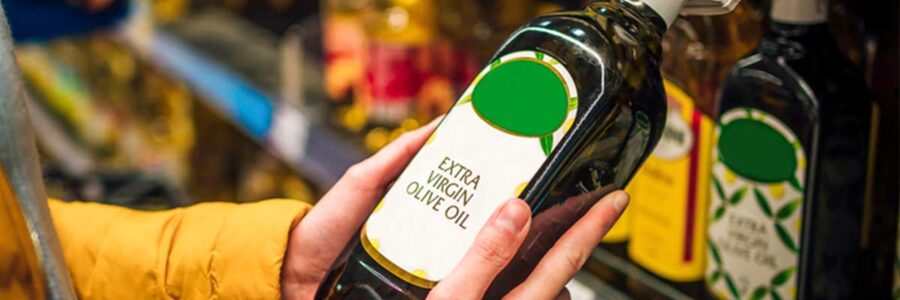What’s Lurking in Your Olive Oil? Are heavy metals, lead, and soybean oil dangerous? There are many fake olive oils on the market. We’ll show you how to identify and avoid the best brands to ensure you are investing in genuine olive oil.
Olive Oil’s Benefits
Eating olive oil as a healthy food source of nutrients is possible, but this depends on its quality. Good quality olive oil can be a nutrient-dense health food. However, it all depends on the oil’s quality.
There is a high amount of monounsaturated fats in it, including olive oil, which has anti-inflammatory properties.[1,2] Olive oil is similar to ibruprofen in its anti-inflammatory properties.[3] It also contains antioxidants that reduce various diseases, including high LDL cholesterol, strokes, and heart disease.[4-5]
Its health benefits are often cited as one of the main reasons this diet promotes longevity, health, vitality, and health.[6] However, the olive oil quality will significantly impact the benefits. Unlike many Mediterranean countries, you won’t be able to buy fresh-pressed olive oil from your local farmer’s markets or at your grandpa’s olive oil farm. You must navigate the maze of lies when buying olive oil in the West. This product is among the most fraudulent, accounting for approximately 80% of all Italian olive oil sold.[7]
Fake and tainted olive oil
The exceptional quality and long history of producing olive oil make Italian olive oil highly sought after. The problem is that most olive oil sold as Italian comes from other countries such as Spain, Morocco, and Tunisia. They press the olives overseas and cut them with cheaper oils, such as soybean oil. The cut oils are combined with other ingredients, such as beta-carotene or chlorophyll to mask the taste and color.
These “olive” oils may contain a large amount of soybean oil or other oils. They ship these oils to Italy with forged purity certificates and sell them as Italian products in international markets. Unfortunately, these oils are so widespread that many Americans have never tried 100% pure olive oil.[8]
Fake olive oil imports are so common that an entire branch of the Italian Carabinieri has been trained to smell bad oil. The lab tests are often used by fraudsters.[9] To stop fraud, they often raid refineries. The industry is still alive because many producers have connections to corrupt politicians.[10]
Understanding Olive Oil Quality
The quality of olive oil is determined by how it is processed and how it’s stored.
-
Extra-Virgin and Cold-Pressed
How olives are made into oil is the first step in processing. Olive oil is primarily monounsaturated fat. However, it also contains polyunsaturated essential fatty acids (PUFAs). These PUFAs can be sensitive to heat. Therefore, properly processing olive oils with cold extraction and pressing is necessary to preserve their flavor and nutritional profiles.
The oil is then graded after it has been extracted. Extra virgin olive oil is characterized by being fruity, free from defects, and having a lower than 0.8 free acidity. Let’s say the olive oil is free from defects and has a free acidity of 0.8 to 2.0. It is then graded as virgin.[11] Extra virgin olive oil has a lower acidity and is considered higher quality than virgin oil.
-
Pure Olive Oil
The second thing that makes olive oil high quality is its purity. We have seen that oils can be cut with less expensive ingredients, such as soybean oil and then manipulated to make it taste and smell like olive oil.[9]
Most people can distinguish fake and real olive oils only after receiving proper training. To determine if your olive oils are genuine or fake, you must use third-party testing by olive oil vigilantes such as Consumer Reports.
-
Properly stored
Properly storing extra virgin olive oil, cold-pressed and pure, should be a way to preserve its quality and freshness. Glass jars should be ideally darker in color.
The Naughty List
- Filippo Berio
- Bertolli
- Pompeian
- Colavita
- Star
- Lucini
- Newman’s Own
- Whole Foods
- Safeway
- Mezzetta
- Mozzola
- Berio
- Amazing Value
The Good List
- California Olive Ranch
- Cobram Estate
- Kasandrinos
- Corto Olive
- O-Live
- Oleoestepa
- Ottavio
- Omaggio
Summary
One of the most fraudulent products in the world is olive oil. You must undergo third-party testing to verify the authenticity of the olive oil you purchase. Store extra-virgin and cold-pressed olive oils in dark-colored glass containers and subject them to third-party testing.
References:
- Basu, Arpita et al. “Dietary factors which promote or retard inflammation.” Arteriosclerosis and thrombosis vol. 26,5 (2006): 995-1001. doi:10.1161/01.ATV.0000214295.86079.d1
- Yoneyama, Satoko et al. Journal of epidemiology vol. 17,3 (2007): 86-92. doi:10.2188/jea.17.86
- Lucas, Lisa et al. “Molecular mechanisms for inflammation. Current pharmaceutical designvol. 17,8 (2011): 754-68. doi:10.2174/138161211795428911
- Beauchamp, Gary K et al. Nature vol. 437,7055 (2005): 45-6. doi:10.1038/437045a
- Schwingshackl and Lukas. “Monounsaturated fat acids, olive oil, and health status: A systematic review and meta-analysis from cohort studies.” Lipids and health vol. 13 154. 1 Oct. 2014, doi:10.1186/1476-511X-13-154
- Estruch, Ramon et al. “Primary prevention and treatment of cardiovascular disease using a Mediterranean diet” The New England journal. 368,14 (2013): 1279-90. doi:10.1056/NEJMoa1200303
- Rodriguez, Cecilia. “The Olive Oil Scam: If 80% Is Fake, Why Do You Keep Buying It?” Forbes, Forbes Magazine, 12 Oct. 2022, www.forbes.com/sites/ceciliarodriguez/2016/02/10/the-olive-oil-scam-if-80-is-fake-why-do-you-keep-buying-it/?sh=1330f3d0639d.
- “Olive Oil Fraud Rampant as Demand Skyrockets.” NPR, NPR, 7 Aug. 2007, www.npr.org/transcripts/12571726.
- Blechman, Nicholas. “Extra Virgin Suicide.” The New York Times, The New York Times, 25 Jan. 2014, www.nytimes.com/interactive/2014/01/24/opinion/food-chains-extra-virgin-suicide.html.
- “Draft Report on the Food Crisis, Fraud in the Food Chain and the Control Thereof – Olive Oil Times.” European Parliament, Committee on the Environment, Public Health and Food Safety, 1.oliveoiltimes.com/library/draft-report-fraud.pdf.
- “What’s The Difference Between Virgin and Extra Virgin Olive Oil?” North American Olive Oil Association. 30 April. 2020, www.aboutoliveoil.org/whats-the-difference-between-virgin-and-extra-virgin-olive-oil.


